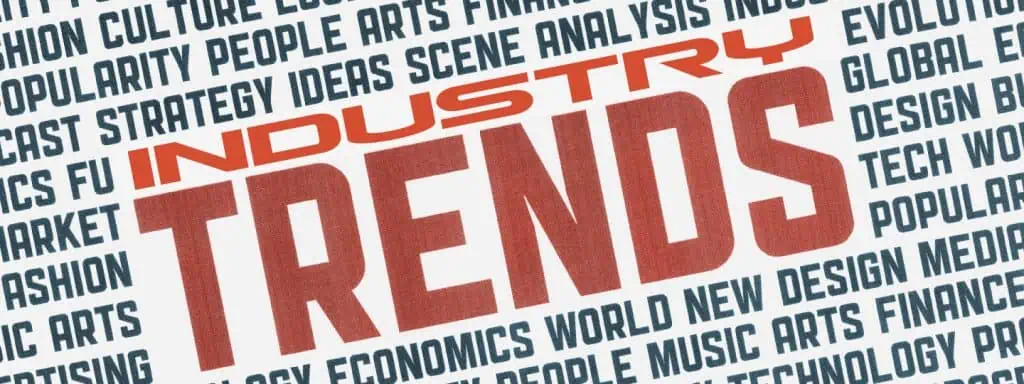At some point, you decided that YOU are going to be the brand – effectively, you decided to brand yourself. It sounds terrifying, but in reality, everyone is their own brand. Other people will always have a view of us based on our reputation, what we stand for and their perception of who we are. They’re the things that differentiate us.
So, as coaches, how do we stand out in a crowded market? Particularly if we’re older. Personal branding for coaches is crucial. This article covers essential strategies to build an impactful brand that attracts the right clients.
Key Takeaways
- Personal branding is essential for coaches to stand out and connect with clients, allowing them to share their unique stories and values.
- A strong personal brand relies on authenticity, consistency, and visibility, which together create trust and engagement with the target audience.
- Continuously adapting to industry trends and measuring engagement metrics are vital for refining personal branding strategies and increasing client satisfaction.

The Importance of Personal Branding for Coaches
In the crowded marketplace of coaching, standing out is really important. Effective personal branding enables coaches to visually (and audibly) stand out – a critical factor in an industry where the difference between obscurity and international recognition hinges on your personal brand.
When a personal brand reflects your true self (when you’re authentic), it not only attracts ideal clients but also fosters deeper connections, making your coaching business more successful and also more fulfilling. A personal branding coach – yes, a coach for coaches – can help you navigate this process, but at a price.
Personal branding is really an investment in yourself – creating a powerful asset that differentiates you from the competition. It works for you as a tool to promote your professional identity and to make sure your unique story and values find your audience. A personal brand helps to achieve this goal effectively.
Most coaches are motivated by a desire to make an impact, help others and, as part of that, share their own journeys. So, understanding and then leveraging personal branding is not just beneficial to you – it helps your clients as you build a successful coaching brand.
Being an older coach has many benefits. We know that the public trusts older people more. That’s because we have more experience, we’ve forged a reputation over a longer time, we have more to lose if we break with our values, we’re likely to be more honest and direct, and we’re more comfortable in our own skin – this is who we are, like it or lump it.

Core Elements of a Powerful Personal Brand
A powerful personal brand is built on three core elements: authenticity, consistency, and visibility. These pillars form the foundation that should not only reflect your true self but also resonate with your audience. Authenticity is the obvious one, showing that your personal brand is genuine. Consistency just means using a cohesive brand image across all platforms (online, on socials, etc.).
Visibility, on the other hand, amplifies your presence, making sure your brand reaches a wider audience. Let’s dig into all three in more detail.
Authenticity: Being True to Yourself
Authenticity is the heartbeat of personal branding. It involves showing up as your genuine self (not pretending to be a cooler version of yourself) and holding to that in every aspect of your professional life. Any personal branding expert will emphasize the significance of building authentic and impactful personal brands for their clients. When you are genuine and transparent, you forge a deeper trust with your clients, which is essential for effective personal branding.
To be able to lean in on your own authenticity, seek feedback from friends, family, and colleagues on how they perceive you. I know – mildly terrifying. However, this self-discovery process will help you align your personal narrative (or story) with your professional identity, making your personal brand not just compelling but also relatable.
You might be surprised by some of the positive things that people say about you – and the similarities. I once went on a three-day training course in a hotel with people I’d never met before. On the last day, each member of the group was asked to describe other members. The same words kept coming up. People already had a strong perception of me – for better or worse!
Consistency: Maintaining a Cohesive Brand Image
Consistency in personal branding is an important step in establishing a recognizable and trustworthy image. Consistent messaging across platforms reinforces ‘brand reliability’ and enhances audience trust.
Add a strong visual identity alongside this consistent messaging to really solidify brand recognition. This will help you build long-term relationships with your clients based on trust. Look at Richard Branson’s Virgin brand. Put that name in front of any service (e.g. Virgin Atlantic or Virgin Records), and you already recognize and trust it.
Visibility: Increasing Your Online Presence
Visibility is the third pillar of a strong personal brand. In today’s digital age, having a strong online presence is crucial. A resonant online presence helps coaches connect and engage with their target audience more effectively.
A strong social media strategy, coupled with consistent and authentic content, can significantly enhance your visibility and help build a wider audience. If you blog, post twice a week – and once to twice a week for YouTube videos. For socials, you need to post every single day. (It used to be half that, but you can thank AI for the change.)

Crafting Your Unique Personal Brand Story
Your personal brand story bridges the gap between you and your audience. It reflects where you’ve come from, who you are today and where you aspire to go, drawing upon your experiences, passions and experience. A compelling personal brand story is relatable and builds trust, making your professional journey more engaging and inspiring for your clients.
Identifying Key Life Milestones
Think about important events and achievements that can be the cornerstone of your personal brand story. These key moments help in crafting a narrative that is not only impactful but also engaging, allowing your audience to connect with your journey on a deeper level.
Using the Hero’s Journey Framework
The Hero’s Journey framework is a great tool for crafting your personal brand story. It’s used for characters in books and movies. It’s a narrative arc of your own journey and the key moments within it. For instance, the moment you decided to coach, the obstacles that got in your way, how you almost gave up, and then overcoming those trials to find success.
By incorporating your struggles and emotional experiences, you create a narrative that prospective clients can see themselves in and empathize with. It makes your personal brand story more relatable, inspiring trust and, therefore, attracting clients who are a good fir with your business. It also highlights resilience and growth, making your brand stronger.

Building a Strong Online Presence
An effective personal brand relies on a strong online presence. It involves optimizing your social media profiles, creating engaging content, and eventually leveraging video and live sessions to connect with your audience.
Collectively, these strategies boost visibility and ensure your personal brand and branding strategy hit the mark.
Optimizing Social Media Profiles
For a strong personal brand, coaches need to tailor their social media bios to highlight their unique value proposition. Here’s how:
- Make sure you fill out all the fields in your profile
- If you don’t already, start using hashtags to reach a wider audience
- If you don’t already, start using images in your content – ideally, unique images you took yourself
- Create valuable content that truly helps people
- Use a call-to-action if you want people to click on a link – you have to ask them to
- Write attention-grabbing headlines and titles
- You don’t have to be on everything! Apply the 80/20 rule – be where most of your audience hangs out and serve more content to fewer platforms
A well-optimized social media profile not only attracts better clients but also improves your overall online presence.
Creating Engaging Content
Engaging content is crucial for connecting with your audience. Sharing high-quality content on social media platforms, such as blogs and videos, can significantly enhance audience engagement. These content formats not only showcase your expertise but also create a deeper connection with your followers. They’ll feel like they know you.
Sharing industry-related content engages your audience, enhances your visibility and shows that you’re across what’s going on in your industry. A well-thought-out content strategy that includes valuable content can help build your personal brand and establish you as a thought leader in your niche.
Leveraging Video and Live Sessions
Video content is not for everyone. But, if you can stomach it, there are lots of benefits. YouTube lets you create a more personal connection with potential clients. That builds trust and rapport, and the numbers show that you have a greater chance of converting those viewers into paying customers.
Any really well-known personal brand is using video. It doesn’t mean we all have the confidence of Tony Robbins, but you’ll get better. That can lead to speaking engagements, more revenue, more visibility, more clients, and the virtuous circle continues.
Live sessions on a platform like Zoom will most probably be how you’ll coach clients, so you’re not a million miles away from hosting a webinar or recording a video.
Networking and Community Building
Networking! I hate networking. I’m an introvert. However, every time I do it, I’m grateful I did – even though I feel like I’ve run a marathon the next day. There are lots of benefits.
Attending Industry Events
Industry events like conferences and workshops significantly enhance your visibility and personal brand. The more visible you are in the coaching community, the more credible you will appear to potential clients.
Actively seeking and participating in these events helps a coach build their personal network and enhance their brand. It also allows a coach to build an alliance with like-minded people or a network to lean on when in serious need of advice.
Engaging with Peers and Influencers
Relationships with industry leaders open up new opportunities and insights crucial for personal branding. Monitoring the activities and strategies of industry leaders helps coaches improve their brand and also stay informed about emerging trends or changes.
Better still, engage with industry experts and participate in forums at events to help build an even stronger network and enhance your brand further.
Creating a Supportive Online Community
Looking at the comments on your social media feed or your YouTube channel can be moderately terrifying. Just know that you’re not for everyone! Some people just won’t get you – and that’s fine. The ones that do will be your superfans.
A supportive online community is first created by sharing authentic content that reflects your brand values. Regularly posting quality content on social media engages your audience and builds a community that supports and enhances your brand – even with a few stray haters that stumble across one of your posts.

Adapting to Industry Trends
I know this is kind of obvious, but nobody wants to be coaching people to do things that aren’t relevant anymore. You can obviously damage your personal brand if it gets around. Continuous learning, looking at different metrics and evaluating client feedback will help optimize your personal branding strategy.
Staying Updated with Market Trends
Regularly look at some of your industry leaders and their content. It should provide insights into how to do personal branding well, but also what’s going on in your industry.
Innovating Your Coaching Services
The more clients you help, the more you’ll be able to hone what you offer. Always ask for feedback if you don’t get it organically. It will keep you competitive and relevant. It will probably also give you an idea for another product or service you could add to your sales funnel.

Measuring the Success of Your Personal Brand
Success can sometimes be hard to measure, especially at the beginning when you have little data to look at. So, listen to customer feedback and put some metrics in place – things like conversion rates, click-through rates, email open rates, website traffic, etc.
Track engagement metrics, such as likes, shares and comments. Then, based on the numbers, make adjustments to try and grow reach and engagement.
The Bottom Line
Building a strong personal brand is a journey that involves authenticity, consistency, and visibility. By crafting a unique personal brand story, optimizing your online presence, and staying connected through networking, you can create a compelling personal brand that resonates with your audience. Adapting to industry trends and continuously measuring your brand’s success ensures that your personal brand remains relevant and impactful. Embrace these strategies, and watch your coaching business flourish.
FAQs
Why is personal branding important for coaches?
Personal branding is crucial for coaches as it sets them apart in a competitive market, helping to attract their ideal clients and build a thriving business. Embrace your unique identity to connect with your audience.
How can I maintain consistency in my personal brand?
To maintain consistency in your personal brand, use uniform messaging and a cohesive visual identity across all platforms. Regularly update your profiles to reflect your evolving brand and keep your audience connected.
What is the Hero’s Journey framework, and how can it help my personal brand?
The Hero’s Journey framework can boost your personal brand by shaping your narrative into a relatable story that really engages your audience. Embrace this structure to connect deeply and inspire others with your unique journey.
How can I measure the success of my personal branding efforts?
To measure the success of your personal branding efforts, track engagement metrics like shares, likes and comments, and gather client feedback to continually refine your approach. This will help you stay on the path to success.
What are the key elements of a strong online presence?
To build a strong online presence, be authentic and focus on optimizing your social media profiles, creating engaging content, and using video. Stay consistent and watch your online impact grow!
Editorial Process
We believe in writing honest and unbiased reviews based on real-world experience. For more details, read our editorial process.
Some of the links in this article may be affiliate links, which can compensate us at no cost to you if you make a purchase. These are products we’ve personally used and tested. This site is not intended to provide financial or health advice. You can read our affiliate disclosure in our privacy policy.
Richard Riviere is a former 9-5er who was fat, frazzled, and fifty.
“There has to be more to life than this”, he decided. So, quit his 30-year career to research how to become healthier and wealthier after 50.
He now teaches other midlifers how to start living life on their own terms again.

